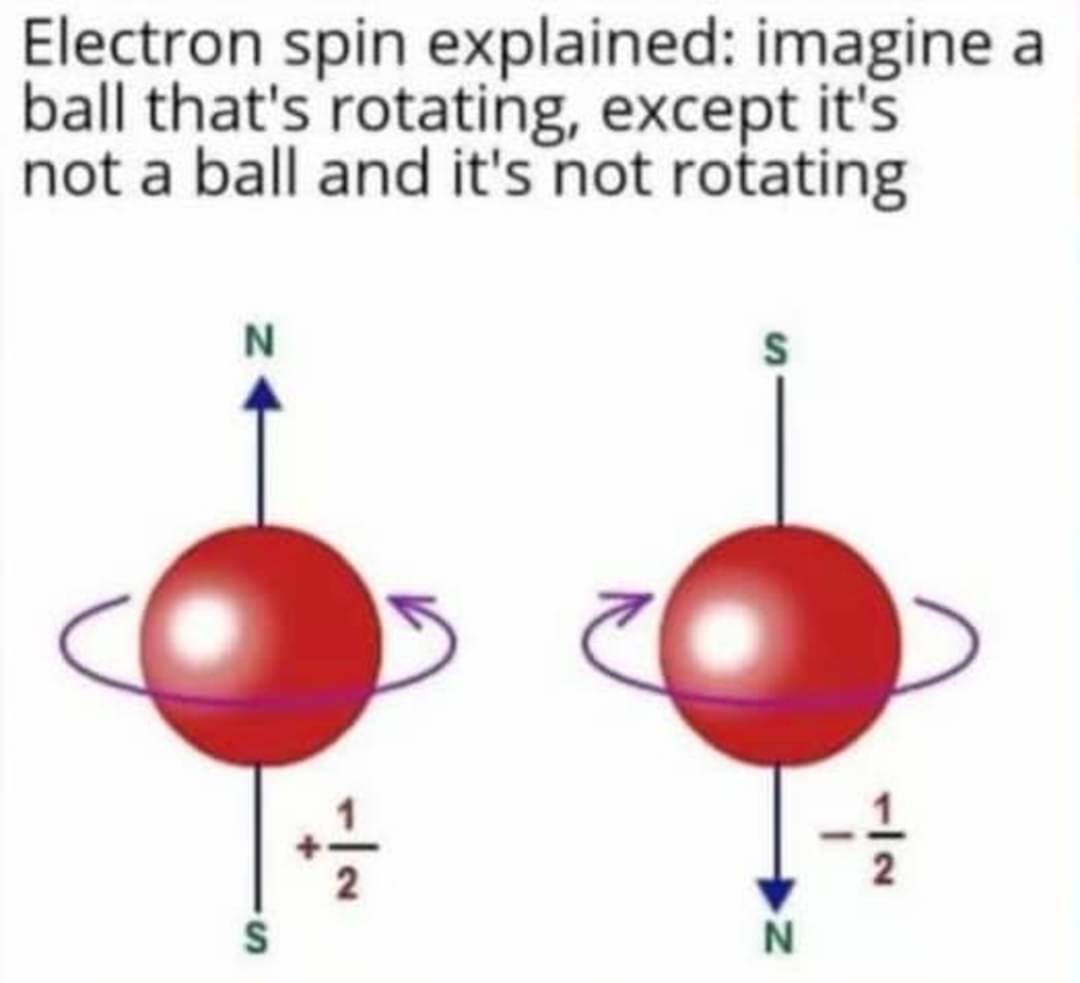this post was submitted on 11 Jul 2024
986 points (98.8% liked)
Science Memes
11581 readers
596 users here now
Welcome to c/science_memes @ Mander.xyz!
A place for majestic STEMLORD peacocking, as well as memes about the realities of working in a lab.

Rules
- Don't throw mud. Behave like an intellectual and remember the human.
- Keep it rooted (on topic).
- No spam.
- Infographics welcome, get schooled.
This is a science community. We use the Dawkins definition of meme.
Research Committee
Other Mander Communities
Science and Research
Biology and Life Sciences
- [email protected]
- [email protected]
- [email protected]
- [email protected]
- [email protected]
- [email protected]
- [email protected]
- [email protected]
- [email protected]
- [email protected]
- [email protected]
- [email protected]
- [email protected]
- [email protected]
- [email protected]
- [email protected]
- [email protected]
- [email protected]
- [email protected]
- [email protected]
- [email protected]
- [email protected]
- [email protected]
- [email protected]
- !reptiles and [email protected]
Physical Sciences
- [email protected]
- [email protected]
- [email protected]
- [email protected]
- [email protected]
- [email protected]
- [email protected]
- [email protected]
- [email protected]
Humanities and Social Sciences
Practical and Applied Sciences
- !exercise-and [email protected]
- [email protected]
- !self [email protected]
- [email protected]
- [email protected]
- [email protected]
Memes
Miscellaneous
founded 2 years ago
MODERATORS
you are viewing a single comment's thread
view the rest of the comments
view the rest of the comments

I think you are just trying to fight rather than actually have a discussion so I'm not really interested in going on, but I will say one last thing to clarify what I am saying for other people who might be reading.
If you say observation = interaction then this inherently leads you to RQM which is like the definition of the interpretation. As I said at the beginning, I do support this interpretation, I think it's the most reasonable approach, but it should be made clear this is a rather fringe point of view and not supported by most academics. You can see in the paper below only 6% of academics support it. And you clearly don't seem to support it yourself as you seem to be pushing back against that rather than just agreeing with my statement it is the most intuitive way to think about things.
https://arxiv.org/abs/1301.1069
The plurality there support the Copenhagen view where observation really is given a special role.
Without going the route of RQM then you end up with something that is just objectively false as the wave function would be incapable of spreading out since particles are always interacting with things, rendering quantum phenomena impossible.
You can clarify instead by saying observation → interaction, that is to say, an observation implies an interaction, i.e. it inherently always entails an interaction but not interactions are observations, however, if you do this, you end up with the measurement problem. That is to say, you need to actually construct a theory to account for what kinds of interactions actually qualify as a measurement/observation. To quote John Bell...
https://philpapers.org/rec/BELAM
Specifying a theory of measurement is known as an "objective collapse" model and they make different predictions than traditional quantum mechanics because depending on where you set the threshold for what kind of interaction qualifies as an "observation" changes how much the wave function can spread out before being collapsed again by such an "observation."
There are several models of this like the Ghirardi–Rimini–Weber theory and the Diósi–Penrose model but these are ultimately more than just other interpretations of quantum mechanics but ultimately entirely new theories.
It is not so simple just to say "observation is an interaction" and then pretend like the job is done, or else there would be no confusion in interpreting quantum mechanics at all. There is a lot more clarification that has to be made in order for it to make sense.